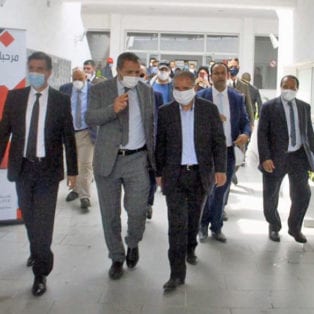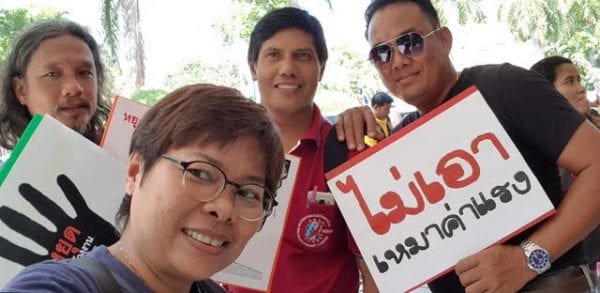Some 1.5 million workers across Tunisia’s private sector will not lose their jobs and will be paid during COVID-19-related closures, following a landmark agreement between the Tunisian General Labor Union (UGTT), the Tunisian Confederation of Industry, Trade and...
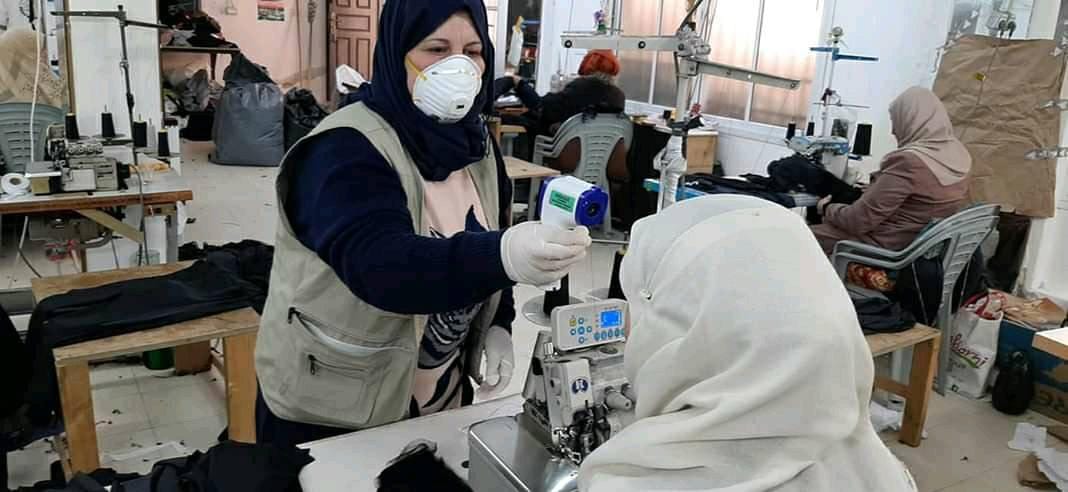
During the COVID-19 pandemic, members of the Palestinian General Federation of Trade Unions, a Solidarity Center partner, tested workers for fever. Credit: PGFTU
Each year, more than 2 million workers die on the job—more than 6,000 a day worldwide. Hundreds of millions more workers a year suffer from non-fatal job-related accidents and illnesses.
The global coronavirus pandemic highlighted and exacerbated the vast inequities facing working people as many risked exposure to the virus without protective safety equipment, tending to sick patients, staffing grocery stores and driving public transport.
In partnership with the Solidarity Center, unions negotiated stepped-up protections and improved wages for workers who risked their lives on the front lines of the crisis, and supported unions as they worked with governments and employers to ensure those furloughed or laid off during the pandemic received wages and social protections such as access to food distribution and unemployment compensation.
Around the world, the Solidarity Center supports networks of unions that are pushing for workplace health and safety measures, such as in Serbia, where unions created a national network of trade union activists to improve workplace safety and health monitoring, and bargain collectively with employers to expand such protections for all workers, regardless of whether they are union members.
On April 28, workers and worker rights activists like the Solidarity Center observe World Day for Safety and Health at Work, an annual day of remembrance for workers who died or were injured on the job and a day to renew the struggle for decent work—family-supporting wages, sick leave and other benefits and safe and healthy working conditions.
Thai Union Organizer Connects COVID-19 and Worker Rights
อ่านบทความเป็นภาษาไทย In Thailand, where automotive assembly plants have temporarily shut down due to COVID-19, the closures have reverberated throughout the country’s supply chain, with many small- and medium-sized businesses laying off workers or freezing or cutting...
COVID-19: Maldives Unions Fight Jobs Bleed, Harassment
The Maldives Trade Union Congress (MTUC) and its affiliates say the government must rapidly address the economic and health impacts of the COVID-19 crisis, urging passage of occupational safety and health and labor legislation and an economic stimulus package targeted...
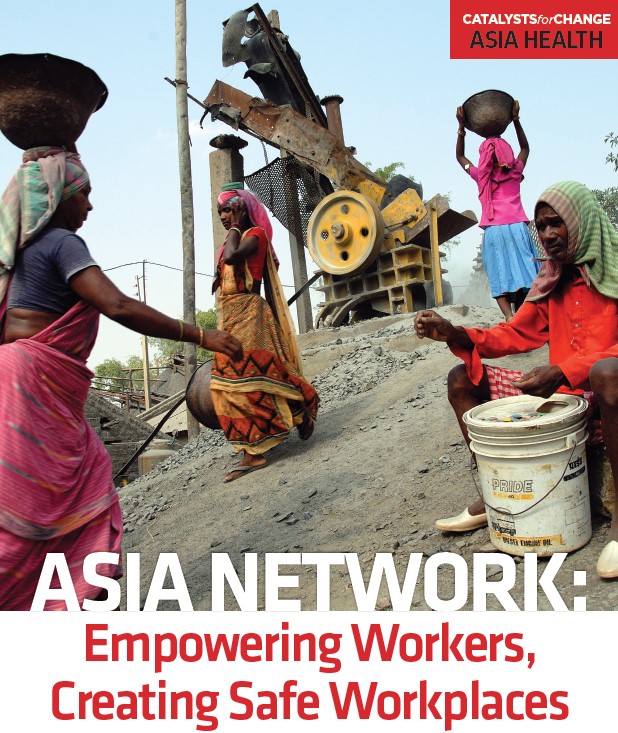
Asia Network: Empowering Workers, Creating Safe Workplaces
Millions of workers in Asia often risk their lives in unsafe and unhealthy workplaces. Through its network of more than 200 regional and national organizations in 14 Asian countries, including sector, national and global unions, ANROEV achieved concrete, worker-led...
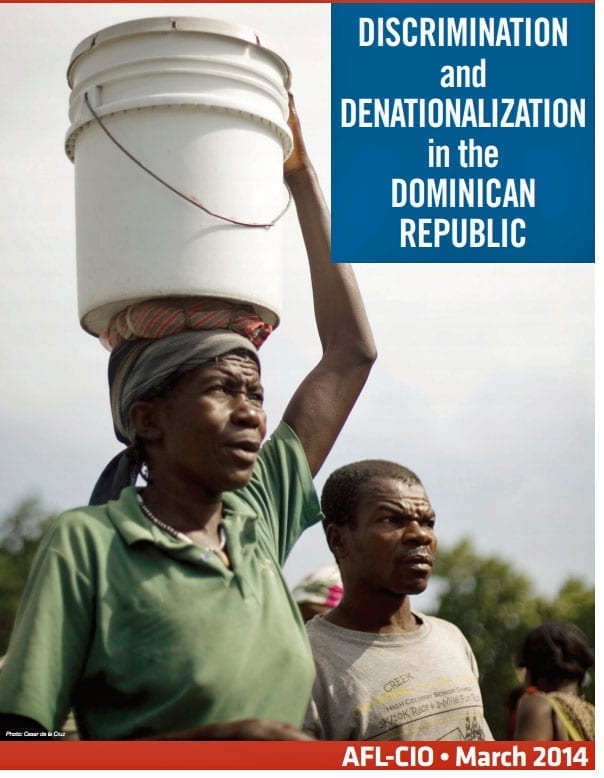
Discrimination and Denationalization in the Dominican Republic
A September 2013 Dominican court ruling taking away citizenship from many migrants means they will be excluded from any activity that requires official identification, including working in the formal sector, attending school, opening a bank account, accessing health...
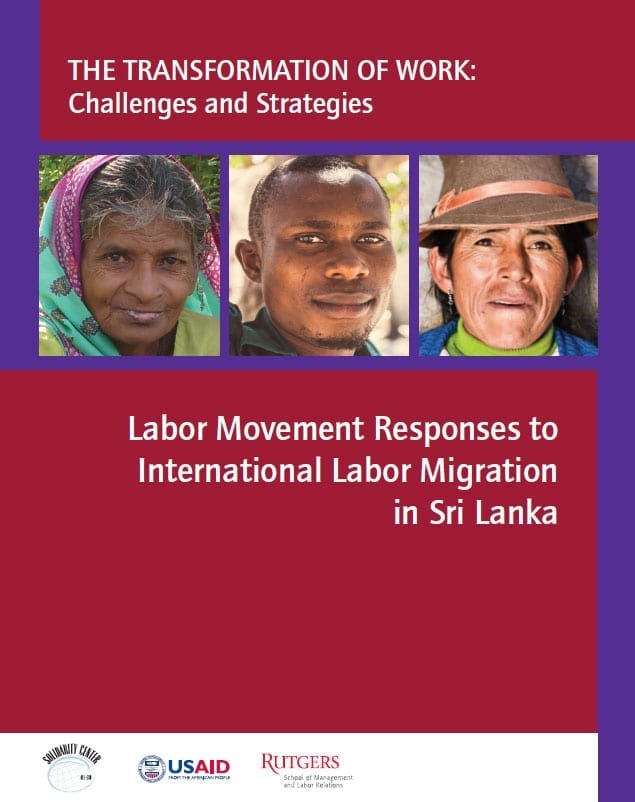
Labor Movement Responses to International Labor Migration in Sri Lanka
This report looks at the political and economic context within which Sri Lankan unions have attempted to respond to migrant workers, unions' role in the key governance and policy mechanisms that pertain to labor migration, and the way the Sri Lankan labor movement...
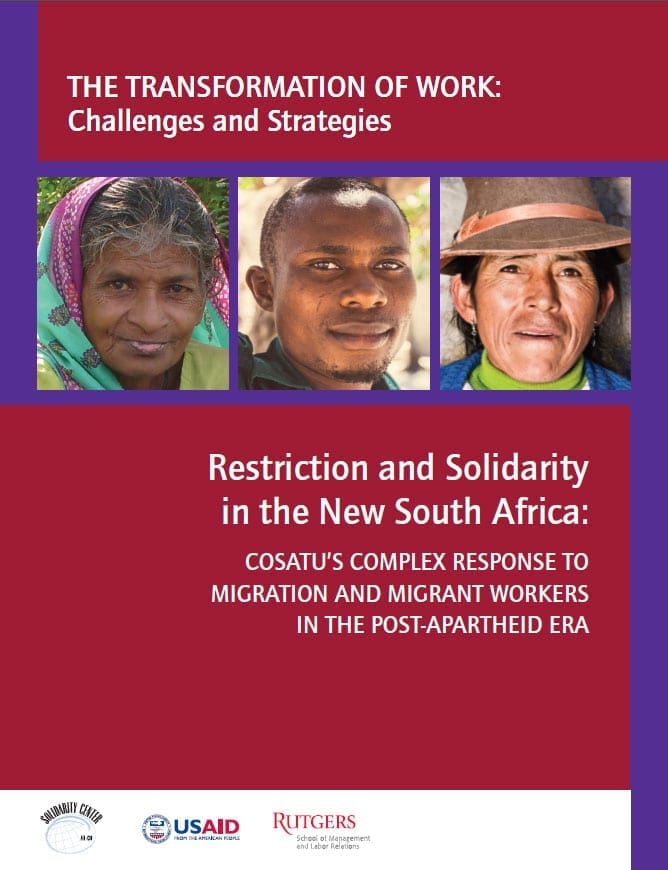
Restriction and Solidarity in the New South Africa
This report look at South African labor’s complicated engagement with migrant workers by examining the migration policy debate, labor’s response to the xenophobic attacks of 2008 and two organizing campaign in the agricultural sector. It sheds light on how labor...
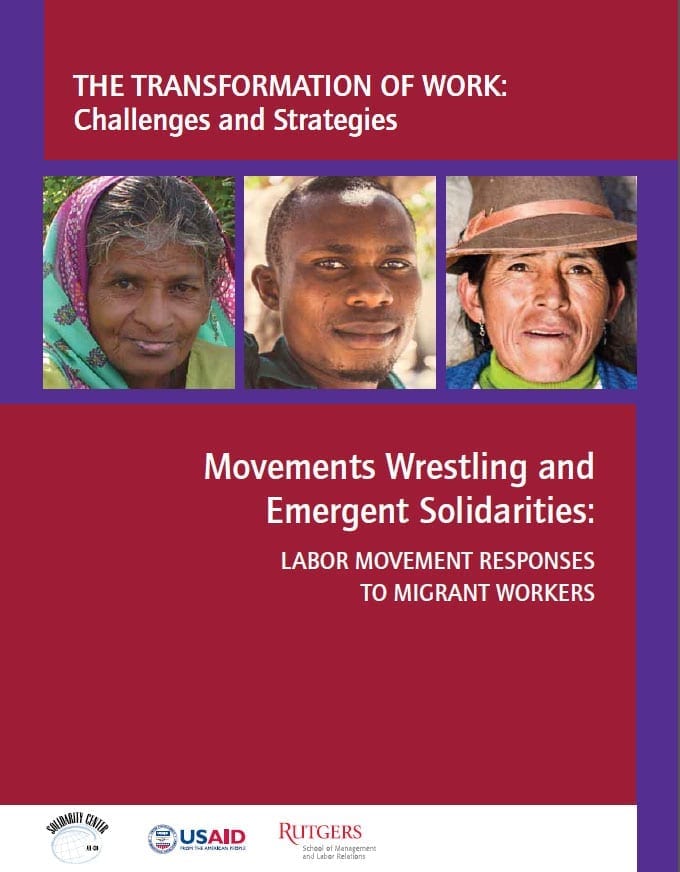
Movements Wrestling and Emergent Solidarities: Labor Movement Responses to Migrant Workers
This report synthesizes a two-year project. Part one consisted of desk and case study research conducted by telephone in Jordan and the Dominican Republic looking into cases where unions had made significant changes in their approach to migrant worker organizing. Part...
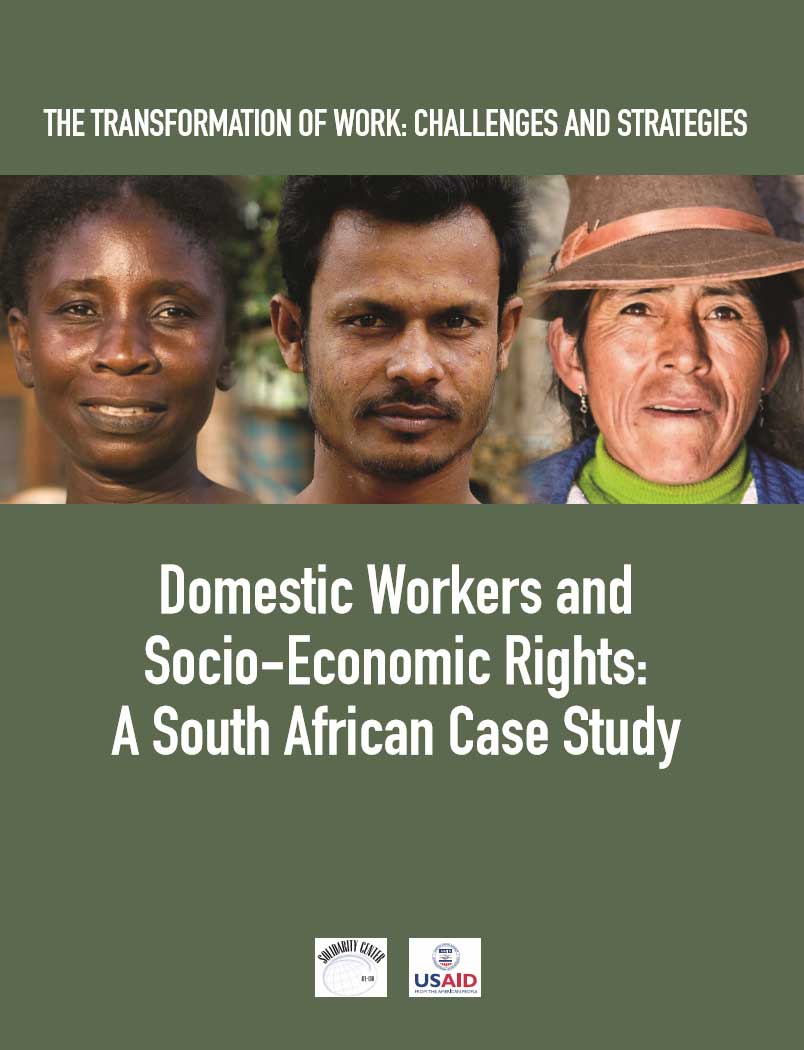
Domestic Workers and Socioeconomic Rights: A South African Case Study (2013)
This report explores the challenges of empowering domestic workers in South Africa through the traditional trade union focus on worker rights, democratic voice and collective action. This Solidarity Center report is part of a multiyear research project, funded by the...

